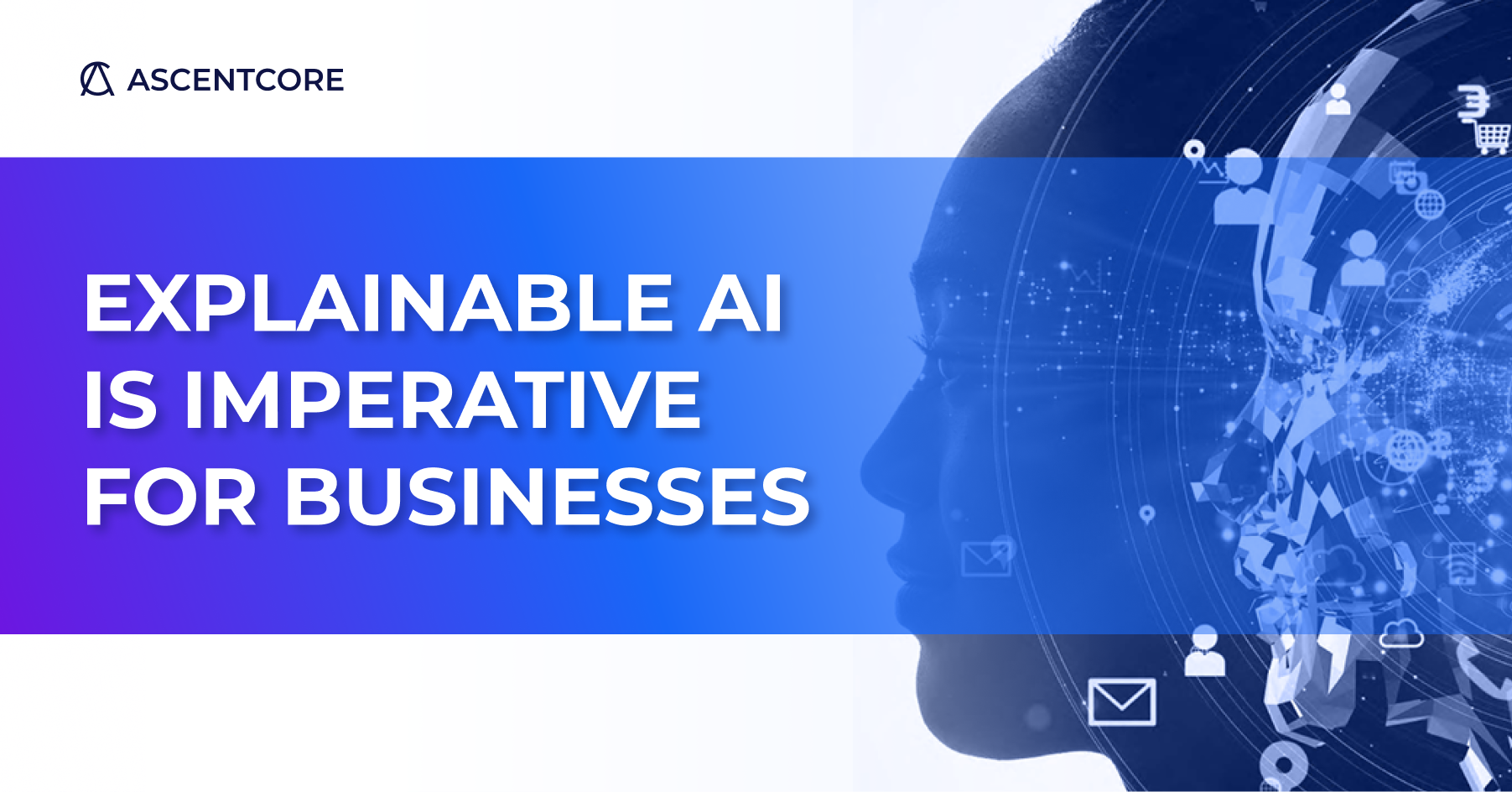As more businesses rely on AI to make products and decisions that can affect human safety, individual rights and business operations, it’s critical that they have an understanding of how AI works. For example, how does a driverless car make important decisions to avoid a crash? In these situations, businesses must understand how AI reaches a certain decision, the data it’s using, and if we can trust the results.
Enter explainable AI.
Addressing questions like these are at the heart of explainability when it comes to AI products, and understanding what that is and how to leverage it, has become a critical part of any business’s AI strategy.
A deeper dive into explainable AI – and its challenges
Explainability is the ability to understand and express how an AI system arrived at a decision prediction, or recommendation. This means that understanding how the AI model works, as well as the types of data underlying it, is imperative. And while this concept initially seems simple enough to operationalize, the more sophisticated AI systems become, the more challenging explainability gets. For example, in a complex web of data, learning, and algorithms, it can be difficult for a human to pinpoint exactly where and how an AI system arrived at an insight. Parsing through and explaining how an AI got from point A to point B is relatively easy, but the insight audit trail becomes harder to follow as AI systems get smarter and interpolate and re-interpolate data.
An additional level of complexity is the different explainability needs based on the type of consumer – even within one business. For example, a financial institution that uses an AI model to approve or deny loans will need to be able to offer a reason if a customer is denied. And loan officers may need even more granular information to help them understand the risk factors the AI model is using in arriving at a decision. From a liability perspective, employees will need to be able to ensure that the data used in the AI model doesn’t have any bias against any applicants. Regulators and compliance officers will also have different needs and interests that require a particular type of explanation.
Why your business needs explainable AI
Despite its challenges, there is no getting around the need for businesses to incorporate explainability into their AI strategies. For example, data shows that establishing digital trust with consumers can help businesses grow their annual revenue and EBIT at rates of 10 percent or more.
And there are even more benefits to adopting explainability:
- Improved business value. When a team can fully understand and explain how an AI system works, an organization can better evaluate if it’s meeting objectives and goals, and make any adjustments to ensure the system is delivering its value.
- Increased productivity. Tools and processes that enable productivity can also quickly identify any errors or missteps, leading to faster resolution. That means less downtime and more attention spent on getting a project to the finish line.
- Uncovering valuable interventions. Taking a deep dive into how an AI model works can lead to surprising revelations that may have otherwise remained undiscovered. For example, if a model predicts customer churn in a certain segment, understanding why it’s happening could reveal an effective method for mitigating the situation.
- Building adoption and trust. To help stakeholders – whether it’s customers, regulators, or the general public – understand how and why an AI model works the way it does can be essential to building trust and increasing the chances of adoption. Understanding that a model is arriving at an insight in a fair, accurate, and data-based manner can ease any worries or concerns about utilizing AI.
- Reducing liability and risk. Explaining how an AI system reached a decision can help businesses demonstrate their conformity to rules and regulations. And if a company does find itself on the wrong side of a rule, being able to point to what went wrong or proving that the model still followed regulations can save money, time, and reputation risks.
Explainability is a strategy
Explainable AI requires more than just finding ways to express how your systems and models work, it’s about putting into place the tools and processes that help your team understand the outcome and be able to explain it to anyone. Establishing mastery of explainability requires a comprehensive strategy, one that includes putting into place the appropriate processes, establishing a framework, and leveraging the right tools.
There are many ways in which a business can operationalize explainability, including:
- Establishing responsible AI guidelines that include explainability
- Creating a governance body that oversees organization-wide AI development
- Staying on top of explainability research, news, and tools
- Investing in the talent that can help achieve your explainability goals
Additionally, finding a partner for your AI journey can help you reach your goals and ensure your investment in AI pays off. Consider partnering with AscentCore – the OG of AI. With a focus on AI and ML, we deliver transformational results for our clients by leveraging the latest technology and empowering companies to disrupt, transform, accelerate, and scale. Find out more on how to overcome data bias and increase model fairness in our latest whitepaper.



